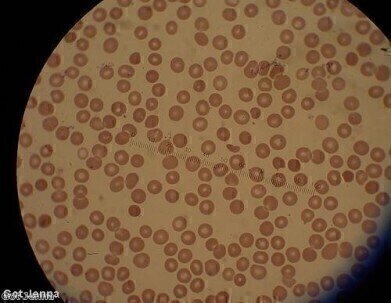-
 Immunity helping scientists develop malaria vaccine
Immunity helping scientists develop malaria vaccine
Bioanalytical
Immunity helping scientists develop malaria vaccine
May 23 2014
US researchers may have found a breakthrough when it comes to developing a cure for malaria. The team are working with a group of children in Tanzania who are naturally immune to the disease in the hope of developing a vaccine.
The research, published in the journal Science, found the children are able to produce an antibody, which then attacks the malaria-causing parasite. The team then discovered that injecting a form of this antibody into mice protected them from the disease.
Professor Jake Kurtis, director of the Center for International Health Research at Rhode Island Hospital, Brown University School of Medicine, said there was "compelling evidence" but further trials were needed in primates and humans to comprehensively assess the vaccine.
Calling the research "a bona fide vaccine candidate", he added that the parasite was particularly difficult to attack, as a result of its millions of years of evolution to co-opt and adapt to our immune responses.
According to the World Health Organization (WHO), the disease killed more than 600,000 people in 2012, with 90 per cent of these deaths occurring in sub-Saharan Africa and the majority of them being children under five.
For the study, some 1,000 children in Tanzania had regular blood samples taken in the first years of their lives, which found that six per cent developed a naturally-acquired immunity to malaria. This was despite them living in an area that has a high concentration of the disease.
The team found that the immune children were able to produce an antibody to attack the malaria parasite at a key stage of its life-cycle. This restricts the small organism by surrounding it in red blood cells, which stops it from spreading to the rest of the body.
When the team made this antibody into an injection for small groups of mice, they found that it showed potential for a new vaccine.
Professor Kurtis said: "The survival rate was over two-fold longer if the mice were vaccinated compared to unvaccinated - and the parasitemia (the number of parasites in the blood) were up to four-fold lower in the vaccinated mice."
Digital Edition
Chromatography Today - Buyers' Guide 2022
October 2023
In This Edition Modern & Practical Applications - Accelerating ADC Development with Mass Spectrometry - Implementing High-Resolution Ion Mobility into Peptide Mapping Workflows Chromatogr...
View all digital editions
Events
Jan 20 2025 Amsterdam, Netherlands
Feb 03 2025 Dubai, UAE
Feb 05 2025 Guangzhou, China
Mar 01 2025 Boston, MA, USA
Mar 04 2025 Berlin, Germany













